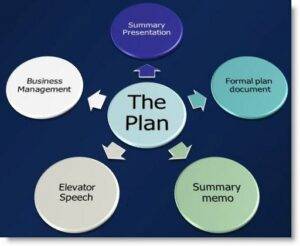The Fundamentals of a Business Plan

A business plan is a written document that outlines a company’s goals, strategies, and the steps it will take to achieve them. Think of it as a roadmap that guides your business through its journey. Let’s explore the core components of a business plan:
Executive Summary
- The executive summary provides an overview of your business, including its mission, vision, and key accomplishments.
- This section is crucial for capturing the attention of potential investors or partners.
Business Description
- Describe your business, its history, and the industry it operates in.
- Explain what sets your business apart from competitors and how you plan to maintain a competitive edge.
Market Research
- Conduct comprehensive market research to understand your target audience, competition, and industry trends.
- Use statistics, surveys, and market data to support your claims.
Products or Services
- Detail the products or services your business offers.
- Highlight the features, benefits, and unique selling points.
Marketing and Sales Strategy
- Discuss your marketing and sales strategies, including pricing, promotion, and distribution.
- Define your target market and outline your sales funnel.
Financial Projections
- Provide financial projections, including revenue forecasts, expense estimates, and cash flow projections.
- This section is essential for demonstrating the financial viability of your business.
Management and Organizational Structure
- Describe your team, their roles, and their qualifications.
- Highlight the organizational structure and how it supports your business’s growth.
Funding Requirements
- If you’re seeking funding, specify the amount you need and how you plan to use it.
- Explain the potential return on investment for investors or lenders.
How to Create an SEO-Friendly Business Plan
Crafting an SEO-friendly business plan can boost its online visibility and reach a broader audience. Here are some key tips for optimizing your business plan for search engines:
Keyword Research
- Conduct keyword research to identify relevant terms and phrases related to your industry and business.
- Incorporate these keywords naturally throughout your business plan.
High-Quality Content
- Ensure your business plan provides valuable and informative content.
- High-quality, original content is more likely to rank well in search results.
Mobile-Friendly Format
- Optimize your business plan for mobile devices, as many users access content on smartphones and tablets.
- A mobile-responsive design improves user experience and can positively impact SEO.
Meta Tags
- Craft compelling meta titles and descriptions for your business plan.
- These tags appear in search results and can entice users to click through.
Internal and External Links
- Include relevant internal links to other sections of your business plan.
- Incorporate external links to authoritative sources to support your claims.
Image Optimization
- If your business plan includes images or diagrams, optimize them for search engines by using descriptive file names and alt text.
In the competitive business landscape, having a well-structured business plan is essential. It not only serves as a roadmap for your business’s success but can also attract potential investors and partners. Creating an SEO-friendly business plan can further enhance its reach and impact in the digital age. By following the guidelines outlined in this article, you can ensure that your business plan is both informative and easily discoverable by your target audience.


